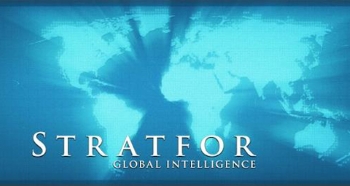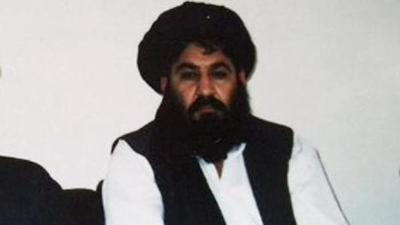 Summary: The hit on Taliban leader Mullah Akhtar Mansoor was another short term tactical win in our long war, achieved (like so many others) at a high cost to our long-term strategic position. It’s why we’ve fought the long war since 9/11 with most bad results. Here Stratfor looks at the details of this successful assassination, and predicts its small fruits. This is a follow-up to Another assassination of a jihadist leader. Here’s what comes next…
Summary: The hit on Taliban leader Mullah Akhtar Mansoor was another short term tactical win in our long war, achieved (like so many others) at a high cost to our long-term strategic position. It’s why we’ve fought the long war since 9/11 with most bad results. Here Stratfor looks at the details of this successful assassination, and predicts its small fruits. This is a follow-up to Another assassination of a jihadist leader. Here’s what comes next…
The late John Boyd (Colonel, USAF) said that grand strategy focused a nation’s actions to increase its solidarity and internal cohesion, weaken opponents’ resolve and internal cohesion, strengthen relationships with allies’ and attract uncommitted states — to end conflicts on favorable terms without sowing seeds for future conflicts. (From “Patterns of Conflict”, slide 139).
A Blow to the Taliban and to U.S.-Pakistani Trust
Stratfor, 24 May 2016
The relationship between the United States and Pakistan has fluctuated between tenuous cooperation and rampant discord. During the Cold War, Washington strengthened ties with Islamabad, doling out more than $3 billion in aid to Pakistan to arm the mujahideen fighting the Soviets in Afghanistan. After a period of relative inactivity between the nations during the 1990s, the 9/11 attacks prompted Washington to reinvigorate ties with Islamabad once again. On Monday, the current state of the relationship between the two nations was put to the test when U.S. President Barack Obama announced that a drone strike in Pakistan’s Balochistan province killed the leader of the Taliban, Mullah Akhtar Mansoor.
The strike comes at a precarious moment for bilateral ties between the United States and Pakistan. Last week, the U.S. House of Representatives passed an amendment to the National Defense Authorization Act that would block $450 million in funding to Pakistan. Alleging that Pakistan has been a duplicitous ally in counterterrorism operations, a bipartisan group of representatives has argued that until Islamabad prosecutes a more vigorous and consistent strategy against militants within its borders, U.S. aid should be restricted.
In another sign of the shaky trust between the nations, U.S. Secretary of State John Kerry did not contact Pakistani Prime Minister Sharif about the strike until after it occurred, demonstrating that Washington does not have faith in Islamabad’s reliability in coordinating such high-level strikes. (Similarly, the United States informed Pakistan about the May 2011 raid that killed Osama bin Laden only after the fact.)
Pakistan’s response to the U.S. action was tempered, yet firm. Sharif stopped short of confirming Mullah Mansoor’s death, saying that authorities needed to complete their investigation, but the prime minister emphasized that the strike was a violation of Pakistan’s sovereignty. U.S. drone strikes are very unpopular among Pakistanis, and Sharif’s response was not unexpected. Of the 391 American drone strikes conducted inside Pakistan since 2004, this is the first to take place in Balochistan, the country’s largest province.

Mullah Akhtar Mansoor. Taken in Frankfurt, Germany, in 1998.
According to leaked documents from 2010, Pakistani officials had consented to at least some of the drone strikes despite public protestations. (Moreover, additional evidence suggests that there is cooperation between Islamabad and Washington in allowing drone strikes). But Pakistan made clear that drone strikes in Balochistan, a settled region outside the tribal areas where most strikes had occurred, would cross a line.
Mullah Mansoor’s presence in Balochistan, though, is unsurprising. In March, Pakistani foreign affairs adviser Sartaj Aziz admitted that his country was hosting elements of the Taliban’s leadership and their families in the southwestern province. In fact, the Taliban’s main ruling faction is called the Quetta Shura because many of its members have resided in Quetta, Balochistan’s capital city, with their families since the U.S. invasion of Afghanistan in late 2001.
But, notably, authorities discovered that Mullah Mansoor possessed a Pakistani passport under an assumed identity featuring an Iranian visa. Photos of the passport indicate that Mullah Mansoor had crossed the border into Iran on March 28 and returned to Pakistan on May 21, the day of his death. The passport also bore an entry cachet stamp indicating that Mullah Mansoor had passed through Pakistani immigration upon his return. If authentic, this shows that Mullah Mansoor’s machine-readable passport was accepted by Pakistani immigration computer systems, indicating that the document was genuine. This raises obvious questions of how a major terrorist figure could secure a genuine Pakistani passport, notwithstanding that document fraud (including fraudulently obtained genuine documents) is endemic in Pakistan.
The Iranian foreign ministry denied Mullah Mansoor’s presence in Iran, but the entry and exit cachet stamps in his passport — not to mention the fact that Mullah Mansoor’s vehicle was found near the border — suggest otherwise. Mullah Mansoor’s 10-month tenure there was born in controversy. In July 2015, the Taliban announced both that their founder, Mullah Mohammad Omar, had died two years earlier and that Mullah Mansoor was taking the helm. Factions immediately began splitting from the Taliban’s core, claiming that their allegiance was only to Omar and that Mullah Mansoor was an opportunist, taking power without earning everyone’s blessings.
Mullah Akhtar Mansoor.
Conclusions
 Ultimately, Mullah Mansoor’s death will do little to blunt the insurgency in Afghanistan. In April, the Taliban inaugurated their spring offensive with a suicide bombing in Kabul that killed 64 people. The Afghan National Security Forces have been plagued with defections, low morale, a leadership deficit and rogue episodes of insider attacks. Last week, an Afghan police officer killed eight of his colleagues in a shooting rampage in Zabul province.
Ultimately, Mullah Mansoor’s death will do little to blunt the insurgency in Afghanistan. In April, the Taliban inaugurated their spring offensive with a suicide bombing in Kabul that killed 64 people. The Afghan National Security Forces have been plagued with defections, low morale, a leadership deficit and rogue episodes of insider attacks. Last week, an Afghan police officer killed eight of his colleagues in a shooting rampage in Zabul province.
Until those deficits are overcome, the tempo of the insurgency will continue apace. Moreover, the influence of the Taliban’s leaders over their organization has waned. The hierarchical structure shaping the group during Mullah Omar’s reign has gradually given way to a decentralized platform, one in which various organizations — including localized militant groups as well as the Haqqani network — have over the years taken up the banner of war. So long as Kabul struggles to deliver meaningful governance in a country still battling corruption, illiteracy and poverty, the Taliban will have space to garner recruits.
Moving forward, Pakistan intends to strike a balance between projecting a firm posture to appease its domestic political base while being careful not to entirely alienate Washington, which Pakistan relies on for military aid. Yet, even as Washington has lost patience with Pakistan’s halfhearted attempts to rein in militancy, both countries recognize that a negotiated peace is the only viable end to the insurgency there. Pakistan, by virtue of its location, will maintain its role as a potential spoiler in the Afghan conflict. Islamabad will also ramp up security in Balochistan, possibly providing cover to the remaining elements of the Taliban still present in the province, attempting to shield them from further U.S. drone strikes.
The Taliban, keen to avoid the fallout that occurred during Mullah Mansoor’s leadership, will seek to carefully manage the transition now underway to elect a new leader. So riven is the organization that on May 16 a Taliban faction loyal to Mullah Muhammad Rasul declared jihad against Mullah Mansoor’s wing.
While Mullah Mohammed Yaqoob — son of Mullah Omar — has been mentioned as a possible successor to Mullah Mansoor, Sirajuddin Haqqani is a more likely candidate. Haqqani, who was second in command of the mainline faction, has already been running the day-to-day operations. Even so, his selection would bode ill for any chance of starting peace talks, since he boasts a sharper ideological edge than Mullah Mansoor, who, at least initially, contemplated joining peace talks.
Update: the Taliban announced the appointment of Mawlawi Hibatullah Akhundzada as their new leader. See Wikipedia. (Source: BBC).
Finally, on the U.S. side, Mullah Mansoor’s death will factor into Obama’s legacy. Having entered the twilight of his presidency, Obama — recognizing that he cannot end the war — will settle for taking credit for Mullah Mansoor’s death. His successor will inherit a conflict that began on October 7, 2001, and that will outlast at least two U.S. presidencies.
The Taliban once reportedly said that “the Americans have the watches, but we have the time.” The death of Mullah Mansoor, while undoubtedly significant, deals a symbolic blow to the insurgency and dampens the potential for peace talks. But it will not derail the militants, leaving a certainty that, for some time to come, the war will go on.
is republished with permission of Stratfor.
No comments:
Post a Comment